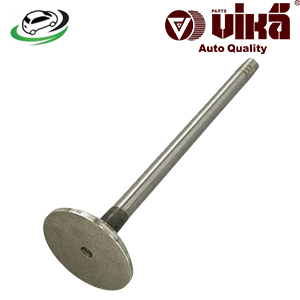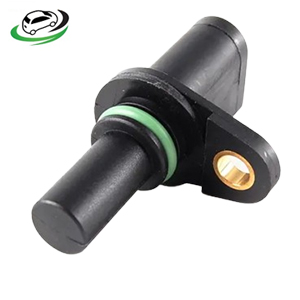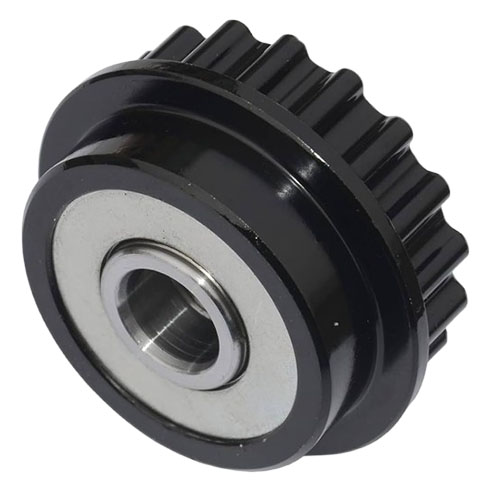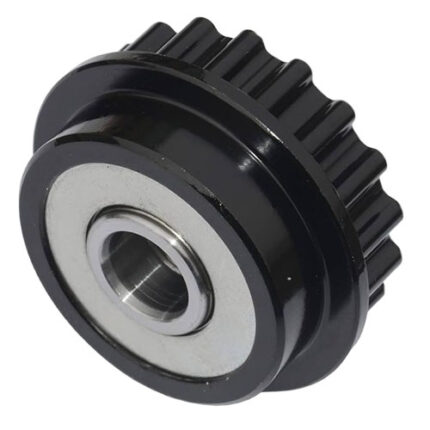-6%
Get Volkswagen Touareg V10 5.0L Alternator freewheel pulley 070903201C in Kenya
The alternator freewheel pulley, also known as an overrunning alternator pulley (OAP), is a critical yet often overlooked component of a vehicle’s charging system. It is designed to enhance the performance and longevity of the alternator by reducing stress on the serpentine belt and associated components. Understanding the function, benefits, common issues, and maintenance of the alternator freewheel pulley is essential for ensuring the reliable operation of your vehicle’s electrical system.
Function of the Alternator Freewheel Pulley
The primary function of the alternator freewheel pulley is to decouple the rotational forces between the alternator and the serpentine belt drive system. In essence, the freewheel pulley allows the alternator’s rotor to continue spinning freely when the engine decelerates or when there are rapid changes in engine speed. This functionality reduces the strain on the serpentine belt and the alternator itself, improving overall efficiency and extending the lifespan of both components.
In a typical internal combustion engine, the serpentine belt drives multiple accessories, including the alternator, power steering pump, air conditioning compressor, and water pump. These components are connected to the engine’s crankshaft, which provides the necessary rotational force. However, the engine’s speed is not constant; it fluctuates due to changes in driving conditions, gear shifts, and engine load. These fluctuations create tension variations in the serpentine belt, which can lead to slippage, noise, and increased wear on the belt and pulleys.
The alternator freewheel pulley addresses these issues by allowing the alternator to “freewheel” or overrun when the engine speed decreases suddenly, such as during deceleration or gear shifts. This prevents the alternator from causing sudden jerks or surges in the serpentine belt, ensuring smoother operation and reducing the risk of belt slip or failure.
Importance of the Alternator Freewheel Pulley
The alternator freewheel pulley plays a significant role in the overall efficiency and longevity of the vehicle’s alternator and serpentine belt system. Here are some of the key benefits:
- Reduced Belt Wear: By allowing the alternator to freewheel during rapid engine deceleration, the freewheel pulley reduces the stress on the serpentine belt, minimizing wear and extending its lifespan.
- Noise Reduction: The freewheel pulley helps eliminate belt noise, often heard as squealing or chirping, caused by belt slippage or sudden tension changes. This contributes to a quieter engine operation.
- Improved Alternator Performance: By reducing the rotational forces acting on the alternator during rapid engine speed changes, the freewheel pulley helps maintain consistent alternator output, ensuring a stable supply of electrical power to the vehicle’s systems.
- Enhanced Fuel Efficiency: Smoother operation of the serpentine belt and accessories can lead to minor improvements in fuel efficiency, as the engine doesn’t have to work as hard to drive these components.
- Extended Alternator Lifespan: By reducing the mechanical stresses on the alternator, the freewheel pulley helps extend its service life, reducing the likelihood of premature alternator failure.
Signs of a Failing Alternator Freewheel Pulley
Recognizing the signs of a failing alternator freewheel pulley can help prevent more serious issues with the serpentine belt system and the alternator. Common symptoms include:
- Unusual Noises: Squealing, chirping, or grinding noises coming from the front of the engine may indicate a problem with the alternator freewheel pulley. These noises are often most noticeable during engine startup, acceleration, or deceleration.
- Belt Slippage: If the serpentine belt slips off the pulleys or shows signs of excessive wear, the freewheel pulley may not be functioning properly, causing uneven belt tension.
- Vibration or Shaking: A failing pulley can cause vibration or shaking in the belt system, which may be felt in the engine or the vehicle’s cabin. This is often due to pulley misalignment or a seized bearing.
- Reduced Electrical Performance: If the alternator is not able to maintain consistent output due to a malfunctioning pulley, you may notice dimming lights, slow electrical accessories, or a weak battery.
- Check Engine Light: In some cases, a failing alternator freewheel pulley can trigger the check engine light or other warning lights, especially if it affects the alternator’s performance.
Maintenance and Replacement of the Alternator Freewheel Pulley
Proper maintenance of the alternator freewheel pulley is essential for ensuring the longevity of the serpentine belt system and the alternator. While the pulley itself does not require regular servicing, it should be inspected periodically, especially if you notice any of the symptoms mentioned above.
- Regular Inspection: During routine vehicle maintenance, the serpentine belt and pulleys should be inspected for signs of wear, misalignment, or damage. The freewheel pulley should be checked for smooth operation and any unusual noises.
- Replacement Interval: The alternator freewheel pulley is typically replaced along with the serpentine belt, which may be recommended every 60,000 to 100,000 miles, depending on the vehicle and driving conditions. However, if the pulley shows signs of failure before this interval, it should be replaced immediately.
- Proper Tools: Replacing the alternator freewheel pulley often requires special tools, such as a pulley removal tool or a specialized socket, to avoid damaging the pulley or alternator shaft. It is recommended to have the replacement performed by a professional mechanic.
- Belt Tension: After replacing the freewheel pulley, it is important to check and adjust the tension of the serpentine belt to ensure proper operation. An improperly tensioned belt can lead to noise, slippage, or premature wear.
Follow us on Facebook for more parts.




